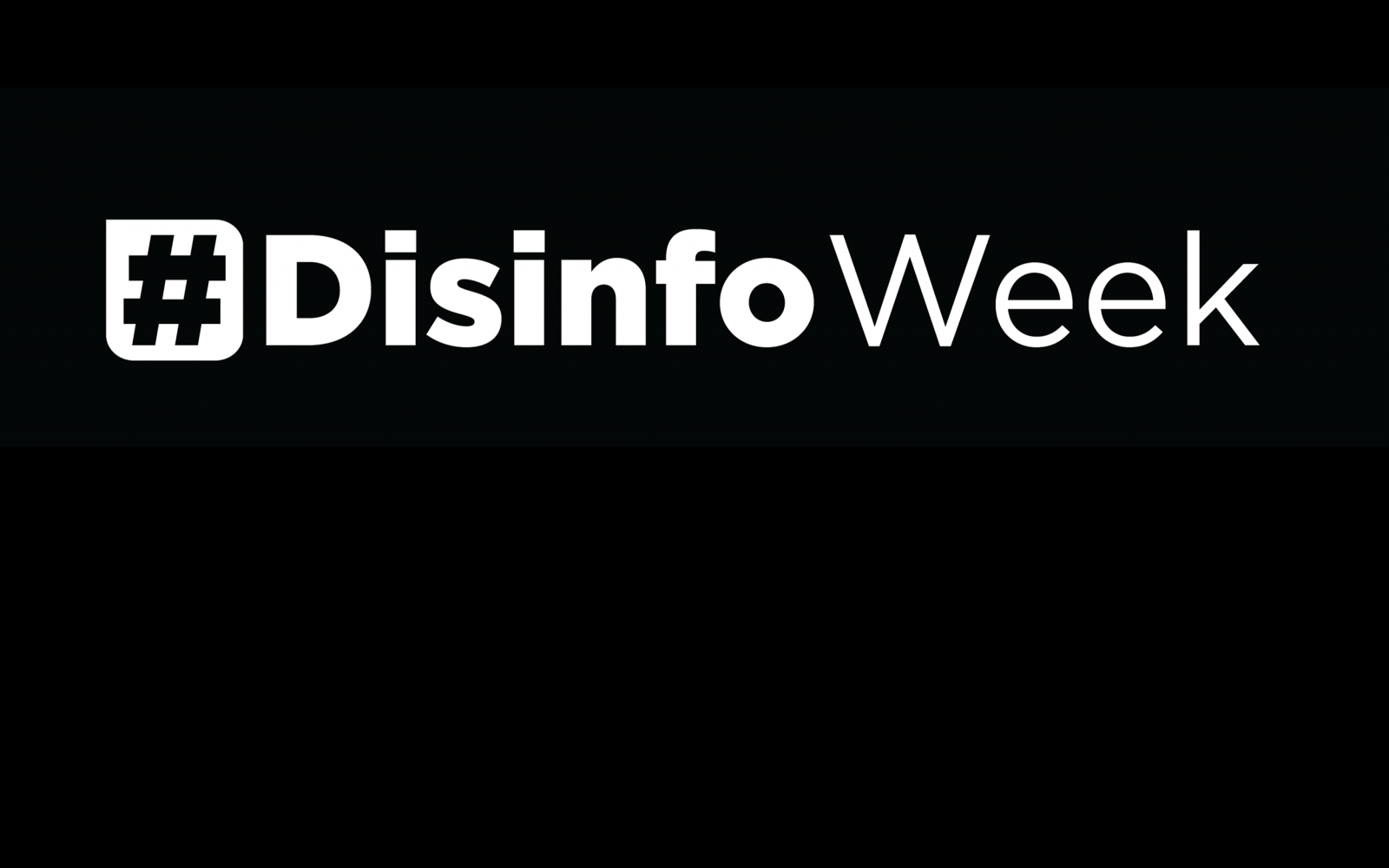
SHARE
Editor's Note: Since the publication of this story, NDI has established the INFO/tegrity Initiative to identify and disseminate practical information on the use of disinformation in democratic politics. Read more about that initiative here.
The challenge posed by digital disinformation came into sharp focus during the 2016 U.S. presidential election. While attention has focused on the influence of Russia’s propaganda efforts in the United States and Europe, the problem is much broader. The misuse of the Internet and social media to undermine democratic processes by deliberately spreading false or misleading information is a global challenge that will require new coalitions, tools and strategies.
A week-long series of discussions last week sought to collectively address this challenge. Held from June 19-30, 2017, #DisinfoWeek featured events in London, UK; Palo Alto, CA; and Washington, D.C.; convening policymakers, tech companies, civil society, and members of think tanks, academia, and media from around the world to find solutions to the global challenge of digital disinformation.
“While the Internet has made a publisher of everyone with a mobile phone, it is not an inherently democratic medium,” said NDI President Kenneth Wollack. “Anti-democratic forces have increasingly weaponized the freedom of the Net to corrupt the marketplace of ideas and sow disinformation. #DisinfoWeek brought together partners from Washington, Silicon Valley, and around the globe to collaborate around responses to this serious problem.”
#DisinfoWeek was comprised of a mix of events, some on-the-record to broaden awareness of the problem, and some off-the-record to facilitate frank conversations among the tech industry and the democracy community. The events were hosted and supported by a cross-sectoral group of partners: the National Democratic Institute for International Affairs (NDI); the Oxford Internet Institute; Stanford University’s Center on Democracy, Development and Rule of Law; the Atlantic Council; the Konrad-Adenauer-Stiftung; the First Draft Coalition; Jigsaw; and the Hewlett Foundation.
The week kicked off in Washington, with a briefing at NDI, on the launch of a set of nine case studies by the Oxford Internet Institute at Oxford University on how computational propaganda is used in different country contexts.
This was followed by the Digital Disinformation Forum, organized by NDI in partnership with the Center for Democracy, Development and the Rule of Law in Palo Alto, California. The Digital Disinformation Forum brought key stakeholders from Silicon Valley and around the world together to discuss how to address the threat posed by digital disinformation. The forum was attended by 110 individuals who work on this challenge at a high level, including key representatives from the most popular social media platforms. Attendees and speakers attended from 13 countries -- including Sri Lanka, the Philippines, and Zimbabwe -- some of whose important perspectives on this issue are overlooked.
“The challenge of disinformation and computational propaganda poses threats to the quality of democratic discourse globally -- it is an issue that extends well beyond the U.S. and Western Europe,” said Scott Hubli, NDI’s director of governance programs.
The Silicon Valley forum delved into how the technologies that underlie popular social media platforms like Facebook and Twitter might be contributing to the problem. Particularly, the conversation focused on how “social bots” -- code that generates or disseminates messages on social media -- are manipulating online discourse, and what sort of collaboration between the tech industry and other stakeholders can be useful in addressing the problem.
It is clear that anti-democratic governments are using computational propaganda -- a mix of algorithms, automation, and human curation used to purposefully distribute misleading information -- to manipulate public opinion within their borders and, increasingly, outside their borders.
The California event was followed by an event hosted by the Atlantic Council in Washington, D.C., that brought this discussion to policymakers, think-tanks, and journalists on the other side of the American continent. The Atlantic Council event focused more specifically on the threat posed by Russian disinformation.
“Even as we turn up the pressure on Russia, we need to recognize that these tools and techniques have spread beyond the exclusive control of any one regime,” said NDI Chairman Madeleine K. Albright at the Atlantic Council. “We will need a global, long-term response.” Read Albright's full remarks.
To facilitate this work, NDI is developing INFO/tegrity, a global initiative that convenes the best minds and front-line practitioners to identify and disseminate practical information on the use of disinformation in democratic politics. The initiative will also sponsor new opinion research to better understand which populations are most vulnerable to disinformation, strengthen international election observation methodologies to include monitoring of disinformation, and work with political parties to set ground rules for online campaign conduct, while developing and sharing techniques to detect and disrupt disinformation efforts.
“The most important component of our effort is to try to help foster constructive engagement between government, civil society, and technology firms,” Albright said, announcing the initiative. “These companies may not be creating propaganda, but they have become the leading platform for it. They need to acknowledge the problem and work with us on solutions.”
#DisinfoWeek was just a beginning. More constructive engagement between the democracy community and the tech sector will be necessary to find solutions. While most experts agreed that solutions will need the involvement of tech companies, the solution will ultimately require actions by across a range of sectors, including tech firms, the democracy community, civil society more broadly, and government.


